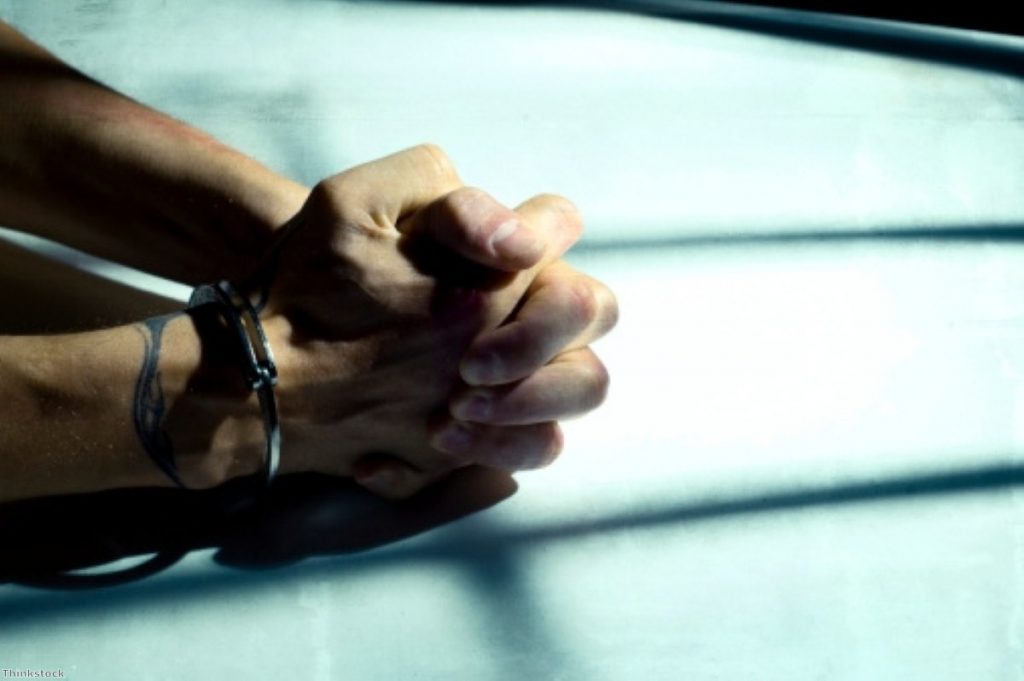Prisons ordered to monitor inmates amid surge in suicides
Prison are being ordered to bolster their programmes for monitoring inmates, amid a surge in prison suicides.
Since November last year, when Chris Grayling's new "Spartan" prison regime was established, the number of suicides in jail has doubled compared to the same period a year ago.
"Deaths have risen sharply in recent months," Nigel Newcomen, the prisons and probation ombudsman, said.
"It is too early to be sure why this rise is occurring, but the personal crisis and utter despair of those involved is readily apparent, as is the state's evident inability to deliver its duty of care to some of the most vulnerable in custody."


In 2013-14 there were 89 self-inflicted deaths in prison, an increase of 37 on 2012-13 when there were 52.
The rise has been particularly acute since last November when new rules banned prisoners receiving packages from friends and families, including books and musical instruments.
Since October 2013, when there was only one self-inflicted death in custody, there have been 50 in prison in total. There were 23 over the same period one year ago.
The new rules also introduced a range of draconian measures, such as punishing those who would not confess to their guilt.
Justice secretary Grayling said the new regime is designed to test "right-wing" solutions to reoffending.
Critics say many prisoners are being dehumanised by being denied personal property and being forced to wear dirty clothes and underwear.
"Prisoners are dying in shocking numbers and it is time to find out why," Deborah Coles, co-director of Inquest, which provides advice to people bereaved by a death in custody, said.
"We are seriously concerned whether harsher regimes introduced by the justice secretary on November 1st are having a devastating impact.
"The government must act urgently to examine what has caused such an alarming rise."
Sadiq Khan, Labour's shadow justice secretary, said: "We should all be worried that over recent years the numbers of people dying in prisons has reached record levels.
"While prisons are about punishment they are also about reform, but higher and higher levels of self-inflicted injuries don’t suggest an environment in which successful rehabilitation is likely to take place."
In two reports published today by the prisons and probation ombudsman, prison staff were warned they needed to fine-tune their monitoring programme to notice potential suicides before they happen.
The first report uses data from investigations during 2007 – 2013 to say that prison staff too often put weight on how a prisoner appeared rather than indicators of known risk, such as recent acts of self-harm.
The report found prisoners often withheld their distress from prison staff and fellow inmates and that there needed to be a strong system to respond effectively when family or friends raised concerns.
A second report looked into prisoners who were being monitored under prison service suicide and self-harm prevention procedures – a programme two per cent of inmates are on at any one time.
The report found the process was not correctly implemented or monitored in half the cases.
"While I recognise the challenges facing busy prison staff and that my investigations have the benefit of hindsight, too often we find that assessments of risk of self-harm place insufficient weight on known risk factors and too much on staff perceptions of the prisoner's behaviour and demeanour," the ombudsman said.
"While the professional judgment of staff is an essential ingredient in ensuring safety in custody, better staff awareness, consideration and training about risk factors could improve safety in custody."
Grayling has refused to meet authors concerned at the ban on books being sent into prison, but last night the prisons minister did agree to meet with Labour MP Kevin Brennan and musician Billy Bragg to discuss the ban on guitars.









